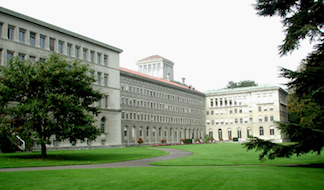The search for new treatments and vaccines needed to respond to the Covid-19 outbreak has laid bare some key issues around intellectual property (IP) and the public interest. The WHO has responded with the launch of a Covid-19 Technology Access Pool on 29 May to share IP, knowledge, know-how, technology and data needed in developing and producing therapeutics vaccines and diagnostic tools.
The discussion on the sharing of key technologies needed during the pandemic is now also being taken up by the World Trade Organization (WTO). South-Africa has put the discussion on the agenda of the 30 July Trade-Related Aspects of Intellectual Property Rights (TRIPS) Council, the WTO body governing IP norms agreed to by member states, with a Communication titled “Intellectual Property and the Public Interest: Beyond Access to Medicines and Medical Technologies Towards a More Holistic Approach To TRIPS Flexibilities.”
It would serve the public interest to share globally new knowledge and tools being developed to respond to Covid-19, but the emerging vaccine nationalism of the last months shows a trend away from the lofty promises of solidarity expressed during the early days of the pandemic, towards a world where each country is fighting for its own interests.
Already, there have been a number of IP disputes around medical technologies needed for Covid-19 and some countries have sharpened their patent laws to enable swift use of compulsory licensing should it be necessary to ensure access to Covid-19 related technologies. See our earlier blog for details. Since the HIV/AIDS pandemic of the nineties, compulsory licensing and government use of medicines patents have been recognised and deployed to access lower-priced treatments needed to fight against disease. For a detailed overview of the use of these ‘TRIPS flexibilities’, see our TRIPS Flexibilities Database. But in the context of Covid-19 technologies, the classic TRIPS Flexibilities alone will not do the trick.
South Africa is now proposing at the TRIPS Council a more holistic approach to the use of TRIPS flexibilities for various technologies and various forms of IP beyond patents, including industrial designs, copyrights and trade secrets. The submission mentions technologies to help detect, diagnose and trace people infected with the virus, protective equipment, smartphone technologies, software (e.g. needed for 3-D printing), artificial intelligence algorithms, data and databases. The country argues that TRIPS flexibilities should expand to those areas but also recognises that the use of flexibilities for many developing countries remains a challenge.
The South African Communication invites WTO members to address the following questions:
- To what extent are TRIPS flexibilities embedded in areas outside patent protection well understood? How are Members implementing such understandings in their national and regional laws?
- What are the likely difficulties that Members may face in dealing with a changing technology landscape where embedded IP rights may affect the dichotomy between IP rights as private rights and the public interest dimensions recognised in the TRIPS Agreement?
- What are the benefits and limitations of initiatives such as voluntary licences and pledges to access much needed technology to deal with the Covid-19 pandemic?
- Are there circumstances where trade secrets can be shared more broadly? If so, what are those circumstances? Would national or international health pandemics fall within this category?
Thiru Balasubramaniam from Knowledge Ecology International, a group that closely monitors developments at the TRIPS Council, explains why he is expecting heated debates this week. He said, “The South African proposal endeavours to lift the veil of secrecy that inhibits deep technology transfer. South Africa has identified trade secrets as crucial in enabling the production of vaccines and medicines. By broaching the question at the WTO TRIPS Council on whether exigent circumstances, including the current Covid-19 pandemic, would permit the sharing of trade secrets broadly, I would expect a heated debate at the WTO over whether current trade rules are fit-for-purpose in the Covid-19 response.”
The TRIPS Council will meet on 30 July to discuss South Africa’s paper.
In the face of companies increasingly explicit plans to profit from the pandemic and growing vaccine nationalism, in particular by wealthy nations, the call for a binding agreement to ‘free the vaccine’ sound louder and louder. The former prime minister of New Zealand, Helen Clark and UNAIDS executive director Winnie Byanyima called for a monopoly-free vaccine and an effective WHO Covid-19 Technology Pool with plans for equitable distribution.
In a forthcoming article, law professors Frederic Abbott and Jerome Reichman propose that countries establish large scale compulsory licensing facilities to share IP related to Covid-19 health technologies. They explain that such licensing facilities would be compliant with both TRIPS article 31 (compulsory licensing) and article 73 (national security exception). They acknowledge that the licensing facilities they propose may run into obstacles caused by the opt-out of TRIPS Article 31bis as an importer by a number of high-income countries and they propose various avenues for them to ‘opt back in’. We have addressed the Article 31bis opt-out issue in this briefing note.
And most recently, Thomas Bollyky from the Council of Foreign Affairs and Chad Brown proposed a binding trade and investment agreement to establish an equitable, enforceable system for allocating Covid-19 vaccines.
